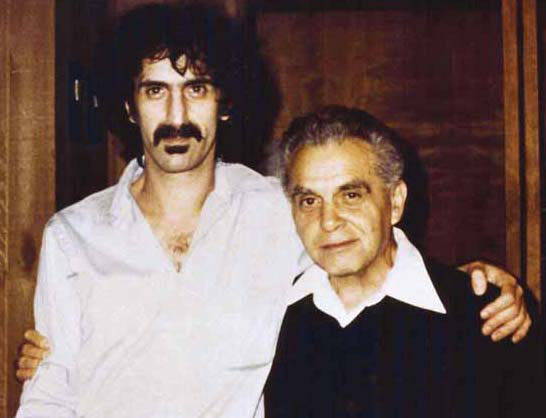Arguments on the Internet are waged through cliché.
Before Watchmen is out today. Alan Moore isn't too happy about it, and has made it abundantly clear that he did not approve it.
Bring this subject up, and sooner or later somebody -- perhaps even an ordinarily intelligent person -- is going to introduce the false-equivalence argument, "Did JM Barrie approve Lost Girls? Did Bram Stoker approve League of Extraordinary Gentlemen?"
I shouldn't have to explain why that is a stupid comparison, but let me just get it out of the way:
JM Barrie did not approve Lost Girls and Bram Stoker did not approve League because JM Barrie and Bram Stoker are fucking dead.
Alan Moore: Not dead. Still alive. Vocally complaining about the use of his characters and concepts.
JM Barrie and Bram Stoker: Dead. Not still alive. They do not have an opinion about Alan Moore.
Not remotely the same thing.
So, okay, point that out and whoever brought it up might concede that point, but then next on the list is "But Watchmen is based on the Charlton Comics characters; it wasn't original in the first place."
Well, you're getting warmer, but still no.
While it's true that the Watchmen cast is deliberately derivative, it is distinct. Rorschach is not the Question, Dr. Manhattan is not Captain Atom, and Nite Owl is not Blue Beetle.
I do think it would have been nice for Moore, Gibbons, DC, or somebody to offer Steve Ditko a check for inspiring their runaway success. (Ditko would likely have refused, because he is Ditko, but it would have been a nice gesture.) But I also think that that's a fundamentally different situation than if, say, the story actually had featured the Question, Captain Atom, and Blue Beetle and Ditko had been asking them not to make it.
Being able to create original characters who are clear analogues to existing characters is a good thing, and the comics industry is built on it. Superman is based on Doc Savage and Batman is based on the Shadow. But they are most certainly not Doc Savage and the Shadow; they're not merely distinct legally, but also morally and artistically. Just as the characters in Watchmen are distinct from their inspirations.
Even in current issues of League, where Moore is clearly using still-living creators' characters with the serial numbers filed off -- most notably Voldemort --, it's still not the same thing. Including a popular, culturally-important character in a minor role or cameo in an ensemble book and never referring to him by name is qualitatively different from making him the main character and sticking him on the cover.
All that said, there are some people who have made a fair point and a rational comparison in this debate: Alan Moore did spend most of the 1980's working on other people's characters. Superman, Batman, Green Lantern -- for someone who now bemoans DC's predatory contracts, he didn't seem too concerned about Jerry and Joe's cut when he wrote Whatever Happened to the Man of Tomorrow?
And that is a fair point. You can take this a number of different ways, I suppose -- it could be that Alan Moore was simply young and naive and didn't think about things like that in those days. Or it could be that he, Scott Kurtz-like, knew about the injustices of the past but naively believed that things were All Better Now.
Or, cynically, it could just be that he didn't care about unfair contracts until one affected him, or until after he was already rich enough that he could afford to tell DC off.
Honestly, that's a valid interpretation. I can respect that opinion. It's not flattering, but it's at least logically consistent.
And the other thing is, you know, Alan Moore is kind of a dick.
First, there are the blanket statements he constantly makes about everyone at DC and Marvel being terrible and doing nothing but rehash his ideas from 25 years ago. Now unfortunately, I do believe there's some truth to that -- grim-'n'-gritty stories attempting to duplicate Watchmen and Dark Knight Returns are a blight on the superhero genre -- but to say that there's not one person with a single original or creative idea at either company is just, by Moore's own admission, an insult delivered from a position of ignorance.
There's also a whiff of the paranoid conspiracy theorist to Moore's ranting about DC. I don't really think DC bought WildStorm just to get Moore back. And neither do I think that Steve Moore (friend, no relation)'s novelization of the Watchmen movie was scrapped out of petty revenge against Alan, acted out through coded threats transmitted through an unwitting Dave Gibbons -- I find it far more likely that someone at DC just realized that making a novelization of a movie that tried its hardest to be a shot-for-shot adaptation of an existing comic book they already published was a fucking stupid idea.
But his claim that DC was using Gibbons to send weird coded threats brings us to another problem I have with Moore: he has a pretty spotty history with his co-creators.
I think it's wonderful that he refused his share of royalties from V for Vendetta and Watchmen and insisted that it be given to David Lloyd and Dave Gibbons, respectively. I also think that it's a damn shame that, afterward, he accused them of being ungrateful and refused to speak to them ever again.
And that's something that I think too many people have ignored here: comics is a collaborative medium, Alan Moore didn't make these comics by himself, and unfortunately he doesn't just have a history of falling out with his collaborators, he also has a history of blocking their old work from being reprinted.
Steve Bissette -- who says he still has no idea what he said that made Moore refuse to speak to him anymore -- has spoken at length about his attempts with Rick Veitch to reprint 1963 and Moore's refusal to let it happen, and has noted, sardonically, that as much as he hates work-for-hire, it's his WFH collaborations with Alan that are still in print and earning him royalties, not their creator-owned work.
So while I still think Moore and Gibbons should own Watchmen, I acknowledge the very real possibility that if they did, Moore might still have declared Gibbons to be persona non grata and might very well have forced Watchmen out of print. We'll never know.
To the matter of the Watchmen contract: I don't think anyone was attempting to hoodwink Moore and Gibbons with the reversion clause; neither they nor DC had any expectation that the book would stay in print and never revert.
To that end, I can see DC's point that it tried, for decades, to reach an agreement with Moore that would be favorable to all parties, up to and including offering him the rights back if he'd write the prequels himself, and that he was intractable. And I can see Moore's point that DC was moving the goalposts and offering him what it had already agreed to give him, in exchange for more in return from him.
In that sense, it can be viewed as simply a dilemma, as two parties unable to reach an agreement (with Gibbons trapped in the middle) and both sympathetic to a certain extent.
On the other hand, there were cases where DC clearly took advantage of Moore and Gibbons, most notably in the case of the Watchmen buttons it sold as "promos" so that it wouldn't have to pay them their cut for merchandising.
And Moore has recently claimed that his contract actually stipulated that if he ever refused to agree to anything DC proposed to do with the property, they could hire their own lawyer to sign in his stead. And if that's true, then yeah, I think the contract was predatory.
Which does, of course, mean that Moore should have had a lawyer go over his contract in the first place -- I don't think anyone, including Moore himself, disagrees with that.
But what I don't quite get is the frequent line of reasoning, "He signed a contract, therefore he deserves anything that happens as a result of that." Well, legally, sure, but ethically that's far too callous a worldview for my tastes. The notion that it's Moore's fault for allowing DC to take advantage of him -- well, certainly he deserves some share of the blame, but what I don't get is how that absolves DC of any blame for actually taking advantage of him.
JM Straczynski's "Did Alan Moore get a crummy contract? Yes. So has everyone at this table. Worse was Segal [sic] and Shuster, worse was a lot of people" dismissal is particularly galling.
But JMS inadvertently brings up another point -- by being, himself, a perfect example of a famously difficult person to work with, a guy known for publicly criticizing the people who sign his checks, who DC puts up with anyway because he brings in good money.
Moore may seem intractable, but DC hasn't gone to much trouble to keep him happy. As Heidi MacDonald recently noted, he was willing to collaborate with them on a Watchmen retrospective back in 2000 -- but after that, DC pulled one of his stories, almost didn't publish Black Dossier, and never did publish it in the format Moore and O'Neill wanted.
Hell, Moore was even consulted for the V for Vendetta movie up until he read a script written by Americans who didn't even have a working idea of how British people talked or the basic structure of the British government.
Moore may be a crank, but MacDonald's point is sound: DC is making the same mistake it's been making since 1939. It's focusing on the characters as its treasure trove instead of their creators.
Way I see it, Before Watchmen will sell well at first and be largely forgotten in a year or two. It's another example, like the New 52, of short-term gimmick thinking -- it'll be a blip on the radar, rather than something that brings in new long-term readers and fans.
You know what could have brought in new readers and fans? New material by Alan Moore.
DC is so singularly focused on wringing every last penny out of Watchmen that it hasn't even stopped to consider what made the book great. It wasn't Ozymandias and the Comedian. It was Moore, Gibbons, and colorist John Higgins.
And maybe Moore was always going to get pissed off and take his ball and go home. Maybe nothing DC could have done would have been enough to get him to stay. Or maybe, if they'd gone to more trouble to keep their biggest-name creator happy, he'd still be around churning out new bestselling books for them -- we'll never know.
Course, there's also the point that Before Watchmen is a terrible idea in the first place, and it would still be a terrible idea even if Moore gave it his blessing -- even if Moore wrote it himself. (And yes, he was planning on it at one point.)
Watchmen is a complete story with a beginning, middle, and end. It stands alone, and should continue to do so. I love Darwyn Cooke and Amanda Conner (and I've enjoyed some stuff by JMS and Azzarello), but I'd much rather see them working on something new.
Discuss this in the Watchmen thread at Brontoforumus!

